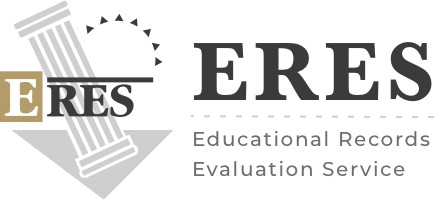Blog
Bar Exam Basics: Are You Eligible to Take the US Bar?

Are you planning to take the bar exam in the U.S.? Whether you’re an international lawyer or a law school graduate, you need to consider the keynote eligibility criteria.
Each state has its own rules and regulations. Here we’ve discussed the bar exam basics with a breakdown approach to help you figure out how you can take up the bar exam and start your legal career in the U.S.
Let’s get started!
What is a Bar Exam?
The Uniform Bar Examination, also called the bar exam is a standardized test required for anyone who wants to practice law in the U.S. Typically, it is the final hurdle toward becoming a licensed attorney in the United States. This test is conducted to evaluate the knowledge and skill set that a lawyer needs before becoming licensed to practice the law and serve the public effectively.
This exam typically includes -:
A) Multistate Bar Examination (MBE)
B) Essays, and Practical Tasks
C) Cover subjects like constitutional law, civil procedure, criminal law, & professional responsibility
Who administers the Bar Exam?
State Bar Associations administer the bar exam, and each state has specific rules and requirements that candidates must meet. These associations are very important in maintaining legal performance and making sure that fresh cohorts are ready to serve society.
Eligibility Criteria for Taking the US Bar Exam
Here are some of the essential activities for the international candidate who wants to practice law in the United States. Each state has its own eligibility requirements, but here are the primary steps and options for international applicants:
1. Basic Requirements for All Candidates
1.1 Legal Education: Most states require a Juris Doctor (J.D.) degree from an accredited American Bar Association (ABA) law school. This is to check that the candidates have met the standards of U. S legal education.
1.2 Professional Responsibility: Several states require the mandate of a course or passing an exam in attorney conduct (ethics).
1.3 Residency: While not common across all states, some of the candidates set restrictions such as candidates’ residency in the United States or the state where they hope to work.
1.4 Character and Fitness Check: An Authorization and Release (A&R) form must be notarized and completed so as to allow a background check about character and fitness for purposes of legal practice.
2. Complete a U.S. J.D. Program
This is often the straightforward approach, as earning a J.D. degree from an ABA-approved, accredited law school in the United States is qualified to write the bar exam in almost all U.S. states.
Entry into a J.D. program normally entails holding a bachelor’s degree which international applicants can fulfill through their undergraduate education in their home country.
3. Earn an LL.M. Degree
Some states like New York and California allow candidates to qualify with a Master of Laws (LL.M.) degree from a recognized ABA-accredited law school in a state of the United States of America, along with some additional requirements. The LL.M. option is usually more time effective than the J.D. program for candidates already holding a foreign law degree, but it may not grant eligibility in all states.
4. Be a Practicing Lawyer in an English Common Law Country
Some states like New York, and California – for instance, offer bar exam eligibility to candidates who are licensed attorneys in English common law countries with not less than five years of practice as certified legal practitioners. If one meets these criteria, international lawyers may not need to attend a U.S. law school at all.
5. Authorization and Release Form
As part of the bar application, the applicants must attach a notarized A&R form that enables the character and fitness evaluation. These deadlines also differ by state, so candidates should check specific state requirements carefully.
If candidates meet above mentioned standards, they are allowed to sit for the U.S. bar exam and after passing this exam they are given a license to practice law within the United States.
Can a Foreigner be a Lawyer in the USA?
Yes, foreigners can become lawyers in the United States, provided they meet specific requirements. Here are three primary pathways available:
1. Attending a U.S. Law School
Foreign candidates can enroll in Juris Doctor (J.D.) or Master of Laws (LL.M.) programs in an ABA-approved school. The holder of a J.D. has the opportunity to take the bar exam in almost all the states of the US, while the requirement for taking the bar exam after earning an LL.M. degree may be available in some states only.
2. Completing an Equivalency Report
Some states allow foreign-trained lawyers to obtain an equivalency report to assess whether their legal education aligns with U.S. standards. This report, often evaluated by organizations like the National Conference of Bar Examiners (NCBE), can help determine eligibility for the bar exam without additional schooling.
3. Passing a State Examination With No Additional Requirements
Some states such as California and New York offer an opportunity of direct access for foreign-trained attorneys to attend the bar exam from their home country.
Some of these states may exempt additional requirements for candidates who have been practicing in English common law countries for several years.
Such flexibility let foreign lawyers to perform their activities in the United States of America, which is the largest legal industry globally.
How Do I Get My Lawyer License in the USA?
1. Complete a Law Degree
For U.S. citizens, you must earn a Juris Doctor (J.D.) degree from an ABA approved law school.
Foreign-trained lawyers are required either to undertake a Master of Laws approved by the ABA university or to submit the equivalency report regarding foreign education.
2. Pass the Bar Exam
Each state has its own bar exam that tests legal knowledge and its application. The exam could consist of the Multistate Bar Examination (MBE), essay questions, and possibly a question on practical skills.
Foreign-trained lawyers may be eligible to sit for the exam in the first instance without having to attend law school.
3. Meet Character and Fitness Requirements
While applying for the license, an applicant has to undergo a character and fitness review by filling in some background information and references.
This guarantees that candidates are of good ethical bench that can practice law.
4. Complete Professional Responsibility Requirements
All states mandate that individuals should pass the Multistate Professional Responsibility Examination or MPRE which tests the subject matter knowledge in professional ethics.
—----
If you want to know more about the US BAR Exam For Foreign Lawyers Call ERES now and we’ll help practice from scratch.
The Final Words
The bar exam is quite challenging but necessary for practicing law in the United States.
To make the process easier and smoother, invest in credential evaluation services with ERES to leverage the essential step of verifying your international qualifications, ensuring they meet U.S. standards.
This is how you can seek the opportunity to take the bar exam and begin your legal career in one of the world’s largest legal markets.
For more information, reach out at ERES our team is here to help, anytime!
Start Now
ERES
Educational Records Evaluation Service helps Non-US educated individuals to receive their US equivalences with our credential evaluation reports.
Services
Contact us
Tue - Fri: 10:00 to 16:00 ( PST )
4773 Mangels Blvd, Fairfield, CA 94534, USA.
© 2025 Educational Records Evaluation Service. All rights reserved.











